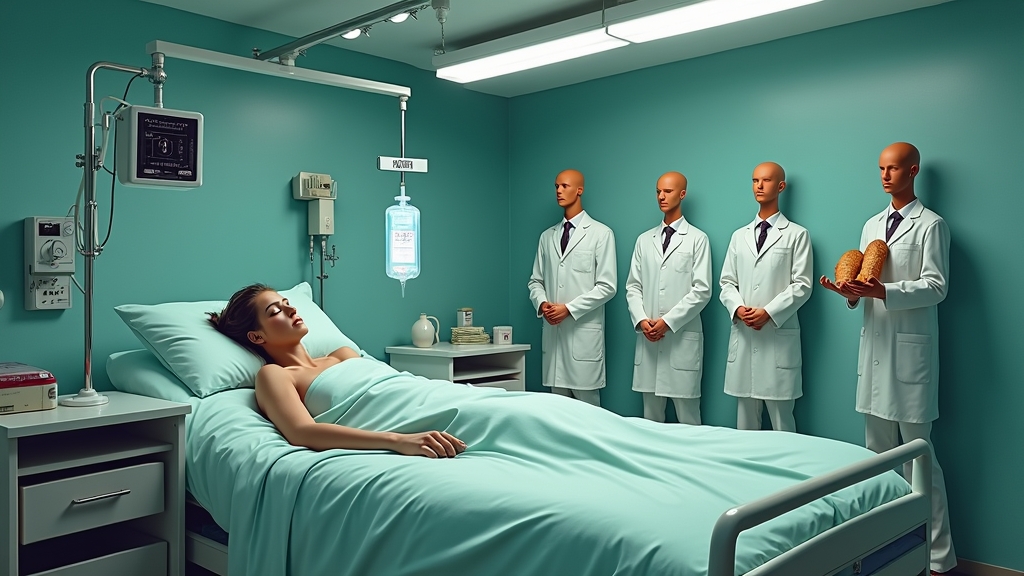AI Surpasses Doctors in Diagnosis, Medical Industry Invents New Test for AI’s Bedside Manner
In a groundbreaking revelation that could signal the apocalypse for human medics, artificial intelligence has reportedly outperformed scientists and general practitioners, giving rise to the urgent question: Just how soon will hospitals replace their humans with holograms?
The buzzword “AI” has become the Paw Patrol of the technology world—wildly different things to different people and entirely too prevalent at children’s birthday parties. To navigate this digital labyrinth, cultural anthropologist and erstwhile coffee shop philosopher Drew Breunig has classified AI into three existential crises: gods, interns, and cogs.
Breunig describes “Gods,” not as celestial beings who occasionally opt for holiday shifts during life-threatening disasters but as super-intelligent, artificial entities that are shockingly autonomous. In layman’s terms: an arrogant AI that insists on driving the karaoke car while simultaneously demanding we all sing its preferred songs. These AI deities are the brainchildren of figures like OpenAI’s Sam Altman, who is apparently vying for the Nobel Prize in “Most Likely To Make Terminator a Documentary.”
Think of AI gods as our last best chance, or worst nightmare, depending on their mood and how much bandwidth they’ve consumed that morning. They demand astronomical amounts of computational power—as if they’re lifting digital weights while chugging energy drinks made of pure CO₂. Who knew a robot uprising might also involve hefty electric bills and environmental protests?
“Honestly, we didn’t expect AI to be so damn good at diagnosing things,” said one slightly flustered doctor. “My stethoscope has been reducing to merely a retro fashion accessory.” Facing existential dread, doctors worldwide are now bracing for patient ratings on AI bedside manner—is it comforting? Can it offer a sympathetic nod, or even notice if someone’s mistaking appendicitis for dinner indigestion?
While scientists and GPs ponder their own futures, patients are busy taking selfies with their newfound holographic doctors. “I’ve always wanted to Snapchat my check-up!” exclaimed someone with questionable judgment but a killer filter game.
Amid all this medical mayhem, humanity pauses to reflect: if our smart specs are more than enough to diagnose the flu, what will we do with all the extra iodine swabs? More importantly, can AI help us finally translate doctors’ handwriting? Meanwhile, otorhinolaryngologists everywhere remain grateful that no one knows what they do—AI, blessedly, seems equally perplexed.
As the dust settles, one thing is certain: The future is here, and it’s looking to purchase an entire suite of supplements from Amazon Prime using your credit card, which you didn’t even know existed. Proceed with caution and maybe also cancel your gym membership—those AI gods might just be taking your space on both the treadmill and the surgical table.





